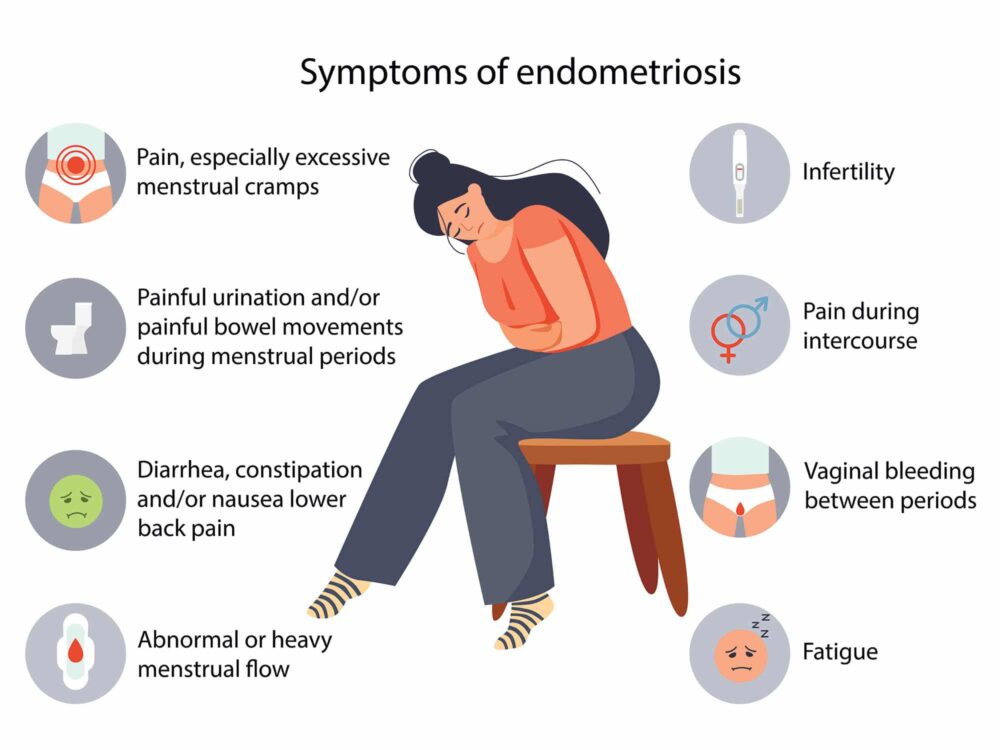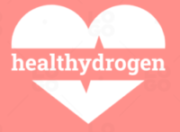
Introduction:
Does alcohol make endometriosis worse Endometriosis is a chronic and painful condition that affects an estimated 176 million women worldwide. It occurs when tissue similar to the lining of the uterus grows outside the uterus, causing inflammation, scarring, and adhesions. The condition can cause debilitating pain, heavy menstrual bleeding, and infertility.
While the exact cause of endometriosis is unknown, there are a number of factors that are believed to contribute to the development and progression of the condition. One of these factors is alcohol consumption. In this article, we will explore the relationship between alcohol and endometriosis, and whether or not alcohol consumption can make the condition worse.
Alcohol and Endometriosis
Alcohol is a central nervous system depressant that has a number of effects on the body. In small amounts, alcohol can be relaxing and enjoyable, but in larger amounts, it can cause a number of negative effects, including liver damage, impaired judgment, and increased risk of certain cancers.

When it comes to endometriosis, there is some evidence to suggest that alcohol consumption can exacerbate the symptoms of the condition. One study found that women who consumed more than seven alcoholic drinks per week were more likely to develop endometriosis than those who drank less than one drink per week. Another study found that women who drank alcohol regularly were more likely to experience severe menstrual cramps and heavy bleeding.
There are a number of possible reasons why alcohol consumption might make endometriosis worse. One possibility is that alcohol can interfere with the body’s hormone balance. Endometriosis is an estrogen-dependent condition, which means that it is influenced by the levels of estrogen in the body. Alcohol can increase estrogen levels, which could potentially exacerbate the symptoms of endometriosis.
Another possibility is that alcohol can cause inflammation in the body. Inflammation is a key factor in the development and progression of endometriosis, and alcohol has been shown to increase levels of inflammatory markers in the body. This inflammation could potentially exacerbate the pain and discomfort associated with endometriosis.
Alcohol and Fertility
Another reason why alcohol consumption may be problematic for women with endometriosis is that it can negatively impact fertility. Endometriosis is a leading cause of infertility in women, and alcohol consumption has been shown to have a number of negative effects on fertility.
Alcohol can interfere with the production of hormones that are necessary for ovulation, which could potentially make it more difficult for women with endometriosis to conceive. In addition, alcohol can damage the liver, which is responsible for processing and eliminating toxins from the body. This can potentially lead to a buildup of toxins in the body, which could negatively impact fertility.
Alcohol and Pain
One of the most significant and debilitating symptoms of endometriosis is pain. Women with endometriosis often experience severe pelvic pain, especially during menstruation. There is some evidence to suggest that alcohol consumption can make this pain worse.
Alcohol is a known irritant to the digestive system, and it can cause inflammation in the lining of the stomach and intestines. This inflammation can potentially exacerbate the pain associated with endometriosis. In addition, alcohol can interfere with the body’s ability to process and eliminate toxins, which could potentially lead to a buildup of toxins in the body that could contribute to pain and discomfort.
Alcohol and Treatment

Finally, it is worth noting that alcohol consumption can potentially interfere with the treatment of endometriosis. Many of the medications used to treat endometriosis, such as hormone therapies and pain relievers, can interact negatively with alcohol. For example, some hormone therapies can increase the risk of liver damage when combined with alcohol, and some pain relievers can cause stomach irritation and bleeding when combined with alcohol.
Endometriosis and hangovers:
Endometriosis and hangovers can be a painful combination. Hangovers can cause dehydration and inflammation, which can exacerbate the symptoms of endometriosis. It is recommended that women with endometriosis avoid drinking excessive amounts of alcohol, especially during their menstrual cycle.
Endometriosis alcohol intolerance:
Some women with endometriosis may experience alcohol intolerance, which can cause a range of symptoms such as flushing, headaches, and nausea. Alcohol intolerance may be caused by a variety of factors, including genetics, hormonal imbalances, and immune system dysfunction.
What makes endometriosis worse:
There are several factors that can make endometriosis worse, including stress, hormonal imbalances, inflammation, and immune system dysfunction. Alcohol consumption can potentially exacerbate these factors, leading to more severe symptoms of endometriosis.
Red wine and endometriosis:
Red wine contains high levels of histamines and sulfites, which can potentially exacerbate the symptoms of endometriosis. It is recommended that women with endometriosis limit their consumption of red wine or avoid it altogether.
Vodka and endometriosis:
While vodka is generally considered to be a low-histamine alcohol, it is still recommended that women with endometriosis limit their alcohol consumption to avoid exacerbating their symptoms. It is important to note that alcohol can cause inflammation, which can worsen the symptoms of endometriosis.
Endometriosis alcohol reddit:
There are many discussions on Reddit about endometriosis and alcohol. Some women report that alcohol exacerbates their symptoms, while others have found that moderate alcohol consumption does not impact their condition. It is important for each woman to listen to her own body and make informed decisions about her alcohol consumption.
Endometriosis worse with exercise:
While exercise is generally considered to be beneficial for women with endometriosis, intense or high-impact exercise can potentially exacerbate the symptoms of the condition. It is recommended that women with endometriosis engage in low-impact exercise such as yoga, walking, or swimming.
Endometriosis diet:
There is no specific diet that has been proven to cure or prevent endometriosis. However, there are some dietary changes that may help alleviate symptoms of the condition, such as reducing inflammation and consuming more whole foods. It is important to work with a healthcare provider to develop a personalized diet plan.
Does alcohol cause inflammation for endometriosis?
Yes, alcohol can cause inflammation, which can potentially exacerbate the symptoms of endometriosis. It is recommended that women with endometriosis limit their alcohol consumption to avoid further inflammation and pain.
What alcohol is best for endometriosis?
There is no specific type of alcohol that is best for women with endometriosis. However, low-histamine alcohol such as vodka may be a better choice than high-histamine alcohol such as red wine or beer.
What aggravates endometriosis?
There are several factors that can aggravate endometriosis, including stress, hormonal imbalances, inflammation, immune system dysfunction, and environmental toxins. It is important for women with endometriosis to work with a healthcare provider to identify and manage these aggravating factors.
What should you not drink with endometriosis?
When it comes to endometriosis, there are certain types of drinks that women with this condition may want to avoid or limit, as they may potentially worsen symptoms. Here are some drinks that women with endometriosis may want to avoid:
- Red wine: Red wine is high in histamines, which can potentially exacerbate symptoms of endometriosis such as inflammation and pain.
- Beer: Like red wine, beer is high in histamines and may potentially worsen endometriosis symptoms.
- Liquor with high sugar content: High-sugar drinks such as sweet cocktails or liqueurs can potentially worsen inflammation and pain associated with endometriosis.
- High-caffeine drinks: Caffeine can potentially worsen symptoms of endometriosis such as pelvic pain and discomfort. Drinks such as coffee, tea, and energy drinks should be consumed in moderation.
- Non-organic dairy milk: Dairy milk that is not organic may contain added hormones and antibiotics that can potentially worsen endometriosis symptoms. Women with endometriosis may want to opt for dairy-free milk alternatives such as almond or oat milk.
It is important to note that everyone’s experience with endometriosis is unique, and what may worsen symptoms for one person may not affect another person in the same way. It is recommended that women with endometriosis work with their healthcare provider to identify any triggers and develop a personalized treatment plan.
Can alcohol worsen the symptoms of endometriosis?
Yes, alcohol can potentially exacerbate the symptoms of endometriosis, particularly inflammation and pain.
Is it safe to drink alcohol if you have endometriosis?
While it is generally safe for women with endometriosis to drink alcohol in moderation, excessive alcohol consumption can potentially worsen symptoms of the condition.
What is the recommended amount of alcohol for women with endometriosis?
There is no specific amount of alcohol that is recommended for women with endometriosis. However, it is generally recommended that women limit their alcohol consumption to one drink per day.
What types of alcohol should women with endometriosis avoid?
Women with endometriosis may want to avoid high-histamine alcohol such as red wine and beer, as well as any other types of alcohol that exacerbate their symptoms.
Can alcohol cause inflammation for endometriosis?
Yes, alcohol can cause inflammation, which can potentially exacerbate the symptoms of endometriosis.
Is there a specific diet that can help manage endometriosis symptoms?
There is no specific diet that has been proven to cure or prevent endometriosis. However, some dietary changes such as reducing inflammation and consuming more whole foods may help alleviate symptoms.
How can exercise impact endometriosis symptoms?
While exercise is generally considered beneficial for women with endometriosis, high-impact or intense exercise can potentially worsen symptoms. Low-impact exercise such as yoga, walking, or swimming is generally recommended.
How can women with endometriosis manage alcohol intolerance?
Women with endometriosis who experience alcohol intolerance may want to limit or avoid alcohol altogether, and work with a healthcare provider to identify any other contributing factors.
How can women with endometriosis manage their symptoms?
There are several strategies that women with endometriosis can use to manage their symptoms, including medications, lifestyle changes, and surgery. It is important to work with a healthcare provider to develop an individualized treatment plan.
Can alcohol consumption affect fertility in women with endometriosis?
Alcohol consumption may potentially affect fertility in women with endometriosis. It is recommended that women with endometriosis who are trying to conceive limit their alcohol consumption to one drink per day or less.
Conclusion
In conclusion, endometriosis is a chronic and painful condition that affects many women worldwide. While alcohol consumption may be a normal part of social life for many, it is important to consider its potential impact on endometriosis symptoms.
Excessive alcohol consumption, high-histamine drinks, high-sugar drinks, high-caffeine drinks, and non-organic dairy milk are some types of drinks that women with endometriosis may want to limit or avoid to potentially manage their symptoms. It is essential for women with endometriosis to work with a healthcare provider to identify triggers and develop a personalized treatment plan that may include dietary changes, exercise, medication, and other strategies to alleviate symptoms.
While there is no cure for endometriosis, there are many treatment options available to help women manage their symptoms and improve their quality of life. By being mindful of what they drink and taking steps to manage their symptoms, women with endometriosis can take control of their health and wellbeing.
